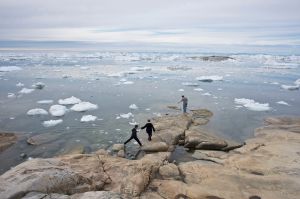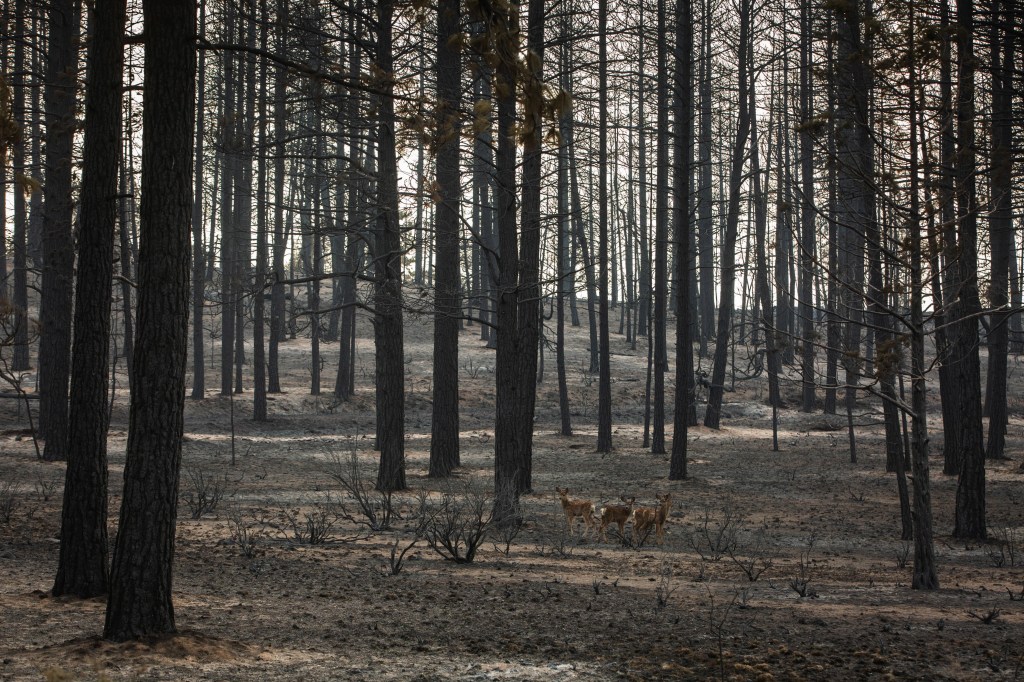The Trump administration moved forward with plans to authorize oil and gas drilling at a national wildlife refuge in Alaska, publishing a request for lease tract nominations on Tuesday. This step would make it possible for companies to purchase drilling leases before the inauguration of President-elect Joe Biden, who has opposed drilling in the refuge.
No company has ever drilled in the coastal plain of the Arctic National Wildlife Refuge, which was established in 1960 and is the country’s largest wildlife refuge. However, legislation that became part of the GOP’s 2017 tax bill opened the refuge for two lease sales of at least 400,000 acres of land each over a seven-year period.
Videos by VICE
“President Trump has made no secret of his desire to push for drilling in the Arctic National Wildlife Refuge,” said Adam Kolton, the executive director of the Alaska Wilderness League, a nonprofit opposing drilling in the coastal plain. “But even from the Trump administration, this plan for a kind of early Christmas present for Big Oil is a major disappointment.”
The Alaska Wilderness League is one of several environmental groups that filed lawsuits in late August to block the process set in motion by Tuesday’s call for tract nominations and comments. According to the notice from the Department of the Interior, oil and gas companies will have 30 days to select tracts of land in the coastal plain. Another 30 days’ notice must be given before a lease sale takes place, bringing the timing of the sale to mid-January.
The coastal plain is home to hundreds of species of wildlife and serves as denning grounds for polar bears and breeding grounds for birds.
The region has remained controversial since Congress first demarcated it as a potential site for drilling in 1980. Environmental groups, Democratic lawmakers, and some Alaska Natives point to the ecological and environmental harm that drilling would have on the region, while oil and gas companies and Republicans (including Alaskan politicians) see the plain as an untapped economic resource.
But it isn’t as simple as a party-line divide: many Alaska Natives who live in the region closest to the coastal plain are in favor of drilling, since the oil and gas industry funds the region by paying property taxes to the Arctic Slope Regional Corporation (ASRC), a for-profit company created under the 1971 Alaska Native Claims Settlement Act.
“We are closely monitoring this public process,” said President and CEO Rex A. Rock Sr. in a statement. “We continue to advocate for the interests of the only community within ANWR and for the Iñupiat landowners within the Coastal Plain. Safely and responsibly opening the 1002 Area to oil and gas exploration will bring well-needed jobs into our communities and into our state.”
The call for nominations comes after the Department of the Interior proposed a seismic exploration of the coastal plain in October, which would entail the conveyance of trucks, tractors, and bulldozers over land that environmental groups call “fragile.”
Kolton said that rushing these decisions before Biden takes office raises questions about their timing and motivation.
“Is this about some of these guys in the Interior Department trying to get a future job in the oil and gas industry? Is it about just trying to stick a thumb in the eyes of people who care about conservation and protection of our natural resources?” he said.
“Who knows, but I’d probably just want to ask them: what do they think they’re doing?”





